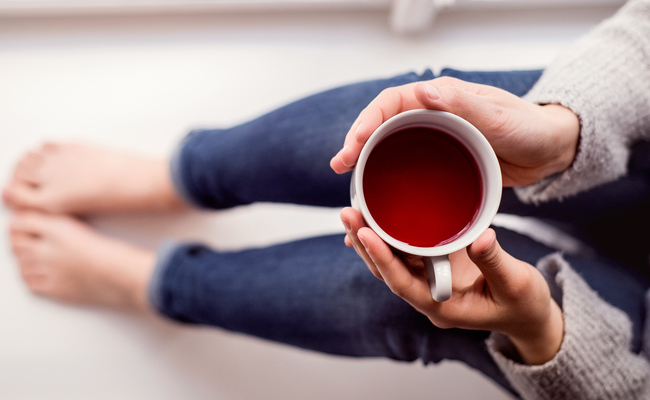
Close to one in every five American adults are living with anxiety disorders. If you’re among them, these simple lifestyle changes can help give you some relief.
We all experience times of profound anxiety, and it can be pretty debilitating. An anxiety attack has the power to completely derail the mind and body and turn life on its head. Anxiety disorders affect almost 20 percent of Americans over the age of 18–that’s 1 out of 5 people. And for years, anti-anxiety medications have been the most popular form of treatment.
But now more than ever, many Americans are starting to favor holistic lifestyle changes and natural remedies in lieu of prescription medications. Our lifestyles, our thought patterns, and our overall wellness are intricately linked. In order to overcome anxiety naturally, you have to remove any recurring toxicity and shift your lifestyle and mind towards a calmer and more mindful state.
Here are some powerful lifestyle tweaks that are widely recommended by professionals to support those with anxiety.
Contents
LIFESTYLE CHANGES FOR ANXIETY
1. Don’t wake up and look at your smartphone.
There is nothing more heart-rattling than waking up to an urgent email or being blasted with a slew of tragic news stories right when your eyes crack open.
Keep your smartphone away from your bed (invest in a good old-fashioned alarm clock if you have to), and give yourself 15 to 20 minutes of phone-free time every morning upon waking. Let yourself drift out of sleep naturally without feeling pulled into the day by a shiny bit of technology and you’ll find that it is easier to start on the right foot.
2. Develop a morning movement ritual.
What to do with those 15 or 20 phone-less minutes, you ask? Get in the habit of waking up, meditating, and doing a small bit of yoga so you can really center for your day. Or maybe you prefer a morning run or bike ride.
Simply allowing your body to move and stretch out the cricks in a non-stressful way makes you better able to cope with challenging situations when they come.
3. Choose green tea over coffee.
If you struggle with anxiety and chug coffee throughout the day, it’s time to stop. Coffee consumption and anxiety attacks are strongly linked. Trade coffee in favor of anxiety-reducing green tea. With a modest amount of caffeine and a compound known as L-theanine, which reduces stress and encourages calmness in the body, green tea will stave off anxiety rather than encourage it.
Other good choices are herbals teas or some warm water with lemon, but be smart and give yourself time to ease off the caffeine addiction if you are notoriously a coffee fiend.
4. Eat balanced, plant-based meals.
The fiber content of plants is hugely important for reducing anxiety. Not only can fruits and veggies act as a prebiotic to help balance your gut bacteria, but they also stabilize blood sugar levels and prevent rapid mood swings.
Consuming smart carbs (like root veggies) over starchy grains (like white rice, pasta, and bread) can further improve blood sugar balance, promote healthy gut flora, and reduce anxiety. Simply eating foods that make you feel healthy and good can shift your moods, too. Incredibly, 95 percent of your serotonin receptors (a happy hormone) lie within your gut, meaning what you eat really matters.
5. Don’t skip meals.
For those with anxiety, skipping meals is just another added stress on the body. Meal skipping can activate the sympathetic nervous system, which puts you biologically into fight or flight mode, meaning anxiety could be around the corner.
In fact, you may even cling on to excess weight if you are skipping meals out of a stressed out place. High cortisol levels in the body are renown for encouraging the growth of stubborn belly fat. If you are anxiety-prone, do your mind and waistline a favor by packing plenty of snacks and enjoying regular, healthy meals.
6. Do HIIT.
High-intensity interval training is a powerful anxiety-reducer, especially for women. Of course, all exercise encourages a reduction in anxiety over time, but HIIT will give you the most bang for your buck.
HIIT exercises not only reduce anxiety immediately after exercise, but the effect actually lasts for hours post-workout. Plus, HIIT only takes about 30 minutes a day, so it is perfectly catered for the sort of busy, stressful, jam-packed schedules that cultivate anxiety in the first place.
7. Practice pranayama.
In general, yoga teaches you how to deal with your anxious thoughts rather than simply mask the symptoms. That’s why so many people, with their doctor’s help, are replacing their anti-anxiety prescription meds with yogic work.
Pranayama, or breath work, is a powerful practice. It wakes up the calm parasympathetic nervous system to put anxious feelings at bay by deepening and lengthening breath. We have a tendency to breathe too shallowly, quickly, and with too much throat tension. Pranayama improves your breathing which, you can imagine, improves and stabilizes your entire life.
8. Prioritize sleep.
When you are sleep-deprived, anxiety levels naturally increase. Always aim for 8 hours a night.
And what about that catch-22 when you’re too anxious to fall asleep? Try herbal teas that contain valerian root, chamomile, and lavender to encourage those droopy eyelids. Journaling or meditation can also be powerful late-night practices that allow you to address what’s on your mind in a healthy way.
Always consult your doctor if you are concerned about anxiety, but even if you do not have anxiety, living a balanced life that prioritizes calm mindfulness will empower you to live your best and happiest life possible.
[“Source-care2”]
